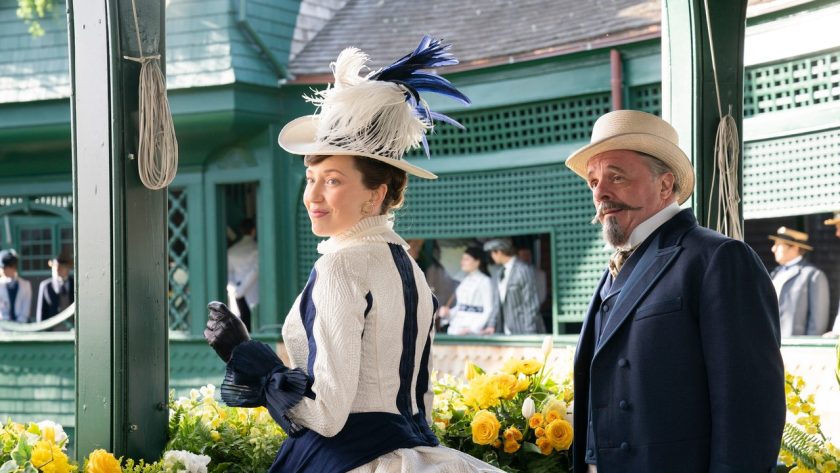Before the writers’ and actors’ strikes shut down the promotional-tour circuit, it seemed like you couldn’t read three entertainment headlines without coming across some showrunner proudly proclaiming their television show to be “like a 10-hour movie.” The line has long since become the peak-TV-age equivalent of old press-tour chestnuts like At its heart, it’s really about family, and the message behind this invocation of a “higher” artform is clear: Our show isn’t a beach read, it’s literature. The discourse around television and the promotional apparatus on which that discourse feeds both exist to convince you that shows aren’t just shows– that they should be important, impactful, zeitgeist-defining, episodic pseudo-movies you need to watch.
The trouble with being a necessity is that it makes it so hard to be a frivolity. The marketplace for must-see TV has become so crowded that more and more I’ve come to appreciate shows that feel less like cultural homework and more like procrastination. The Gilded Age, whose second season premieres this Sunday on Max, is that kind of show—a transporting lark about 19th century snobs and their petty squabbles, where the barrier for entry never feels very high. It’s debatable whether it’s inherently mind-expanding or pure escapism, but watching it always feels like leisure.
It’s not that The Gilded Age’s storylines are simplistic or that its continuity isn’t important—the Peggy Scott’s (Deneé Benton) deep dark secret, teased in the pilot, took almost the entire first season to play out. It’s that The Gilded Age takes such delight in the detail work and such pleasure in every turn of phrase that watching it feels more like a tennis match than a scavenger hunt. You don’t have to understand every nuance of the backstory to know when a character has scored a point. And in The Gilded Age, someone’s always firing a topspin winner down the line.
Christine Baranski plays Agnes Van Rhijn, the widowed leader of New York’s “old money” establishment, with delicious imperiousness. In the pilot episode, she demands that her newly-arrived niece, Marian Brook (played by Meryl Streep’s daughter, Louisa Jacobson) stop dressing in mourning black– she’s discovered that her aristocratic father has died broke and left her penniless—so that Marian can enter society and find a husband. “I won’t have you hanging about the edge of things like a lonely crow,” Agnes stage-snarls, in the politest way possible, as her spinster sister, played by Cynthia Nixon, looks on.
Ever watched two Thai boxers spar? Their trainers are always shouting Ohhh and Ahhh when somebody lands a kick or an elbow. I find myself watching The Gilded Age in much the same way.



